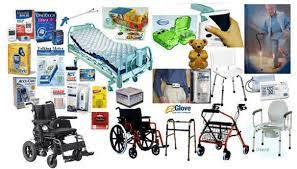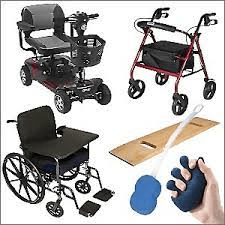As our loved ones age, their needs change and often their personal care products become more specific. Elderly care supplies can significantly contribute to the quality of health industry and of life, safety, and comfort of seniors, whether they’re living independently, with family, or in a care facility. But what exactly are these supplies, and how do you choose the right ones? This blog post aims to guide you through the essentials of elderly and personal care products and supplies and how to make informed choices.
The Importance of Proper Elderly Care Supplies
With age, day-to-day tasks can become increasingly difficult. Mobility limitations, vision impairments, and a range of other health issues mean that seniors often need extra help with everyday tasks. Proper care supplies are not just a matter about convenience; they can make a substantial difference in a senior’s safety and independence.
Categories of Elderly Care Supplies
Mobility Aids
- Walkers and Rollators: These help maintain balance while walking.
- Wheelchairs: For those who find it challenging to walk even short distances.
- Canes and Crutches: For minor support and balance issues.
Bathroom Safety
- Shower Chairs: These offer stability during showers.
- Grab Bars: Installed near the toilet and shower for added safety.
- Raised Toilet Seats: Easier for seniors to use.
Daily Living Aids
- Reaching Tools: To grab items without bending or stretching.
- Button Hooks and Zipper Pulls: Aids for dressing.
- Large Print and Talking Devices: For those with vision impairments.
Health Monitoring
- Blood Pressure Monitors: To keep an eye on heart health.
- Glucose Monitors: For those with diabetes.
- Pulse Oximeters: To monitor oxygen levels.
Incontinence Products
- Adult Diapers: Available in various sizes and absorbencies.
- Bed Pads: For overnight protection.
- Cleansing Wipes: Gentle on the skin and easy to use.
How to Choose the Right Supplies
Assess Needs
A comprehensive evaluation of medical supplies used by healthcare providers can help pinpoint exactly what medical supplies will be most beneficial.
Consider Quality over Price
While it might be tempting to go for cheaper options, quality should never be compromised, especially when it comes to health and safety.
Read Reviews and Ask for Recommendations
Online reviews, as well as services such as personal care such as advice from healthcare providers and friends, can offer invaluable insights.
Ease of Use
Choose products that the elderly person finds easy to use, keeping in mind their dexterity, mobility and cognitive abilities.
Reimbursement and Insurance
Check if the insurance plan covers the supplies or equipment and if there are reimbursement assistance programs available.
Medical Equipment
Medical equipment is vital for the diagnosis, monitoring, and treatment of patients. The fast-paced advancements in medical technology are continuously improving patient outcomes and quality of care in health industry. However, it’s essential to choose the right equipment and maintain it effectively for optimal performance and to maintain patient safety. Whether you’re a healthcare professional, a patient, or simply someone interested in understanding the healthcare world, a basic knowledge of medical equipment can be invaluable.
Types of Medical Equipment
Diagnostic Equipment
- MRI and CT Scanners: Used for capturing detailed images of internal body structures.
- Electrocardiogram (ECG) Machines: Monitor and record the electrical activity of the heart.
- X-ray Machines: Capture images of the internal structures of the body.
Life Support Equipment
- Ventilators: Assist or replace spontaneous breathing.
- Defibrillators: Deliver a therapeutic dose of electrical energy to the heart to treat cardiac arrest.
- Dialysis Machines: Perform the function of the kidneys by filtering waste from the blood.
Therapeutic Equipment
- LASIK Surgical Machines: Used for correcting vision.
- Infusion Pumps: Deliver fluids and medications into a patient’s body.
- TENS Units: Used for pain management by delivering small electrical currents.
Laboratory Equipment
- Centrifuges: Separate components of different densities from liquid samples.
- Microscopes: Magnify small samples for detailed examination.
- Blood Analyzers: Test blood samples for a variety of conditions like glucose levels, cell count, etc.
Medical Furniture
- Hospital Beds: Specially designed for hospitalized patients.
- Wheelchairs: Assist in mobility for those unable to walk.
- Stretchers: Used for moving patients who require medical attention.
Personal Protective Equipment (PPE)
- Gloves: Protect hands from contamination.
- Face Masks: Prevent the spread of airborne illnesses.
- Gowns: Protect against exposure to pathogens.
Choosing the Right Medical Equipment
Quality and Standards
Always opt for equipment that meets international quality and safety standards. Look for certifications from relevant authorities.
Reliability and Warranty
It’s crucial for customers to choose reliable brands that offer warranties and excellent post-sale service.
Cost-Effectiveness
While initial costs might be high for quality equipment, consider the company, long-term benefits and overall value.
Adaptability and Future-Proofing
Choose equipment that can adapt to future technological advancements, thereby extending its lifespan.
Importance of Proper Maintenance
Regular maintenance is crucial for ensuring the longevity and reliability of medical equipment. Many types of equipment require periodic calibration, software updates, and physical inspections to remain effective and safe.
Medical Supplies
Medical supplies are indispensable in complete range of healthcare settings for ensuring patient care, staff safety, and effective medical procedures. Knowing the types of supplies, their applications, and storage requirements can significantly improve the efficiency and safety of healthcare delivery. It’s essential to make informed choices based on your specific needs, always emphasizing quality and compliance. With the right supplies at hand, healthcare providers can focus more effectively on what matters most: patient care.
Personal Hygiene Standards
Maintaining personal hygiene is vital for both physical and emotional well-being. It’s a practice that can also significantly impact those around you, who range from family members to co-workers and even strangers. In healthcare settings, it could mean the difference between health and disease.
Conclusion
Navigating the world of elderly personal care supplies can initially feel overwhelming, but understanding what’s available and how it can help can make the process significantly less daunting. The right personal care supplies can drastically improve the quality of life for seniors, providing them with the independence and dignity they deserve. Always consult with healthcare providers for personalized advice tailored to individual needs.


